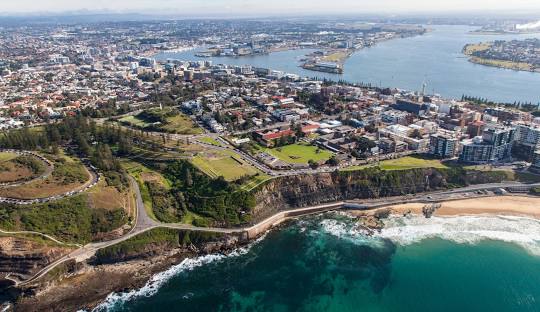
Newcastle's Demographics: A Diverse and Growing Population
Posted by Newcastle Pressure Cleaning Experts on 2025-05-03
Newcastle's metropolitan area is the second-most populous in New South Wales, following Sydney. Often referred to as the 'Greater Newcastle Area,' this region encompasses the local government areas (LGAs) of Newcastle, Lake Macquarie, Maitland, Cessnock, and Port Stephens. As of 2021, the combined population of this area reached 682,465, making it a vibrant and dynamic part of the state.
A significant 83.6% of people living in the Newcastle metropolitan area were born in Australia. The largest overseas-born communities come from England (2.3%), New Zealand (1.0%), China (0.7%), India (0.5%), and the Philippines (0.4%). Aboriginal and Torres Strait Islander people make up 3.8% of the population, adding to the area's rich cultural heritage. English is the most commonly spoken language at home, with 88.2% of residents using it, although Mandarin, Macedonian, Italian, Greek, and Cantonese are also spoken by smaller communities.
In terms of religion, 31.1% of Newcastle residents identify as having 'No Religion,' while 21.7% are Catholic and 19.2% are Anglican. These religious demographics reflect the diverse beliefs of the region.
Newcastle is often mistakenly quoted as being the seventh-largest city in Australia. However, this ranking includes the broader Newcastle Statistical District, which covers a much larger area than just the city itself, incorporating the entire Lower Hunter Region, including surrounding areas like Lake Macquarie and Maitland. As of 2009, the estimated population of this region was 540,796.
The suburb of Newcastle itself had a population of 3,852 according to the 2021 census. Despite being part of a large metropolitan area, the individual LGAs within the Greater Newcastle region retain their unique identities and cultures.
The residents of Newcastle are known as "Novocastrians," a term derived from the Latin words novus (new) and castra (castle or fort), reflecting the city's historical ties to its founding.